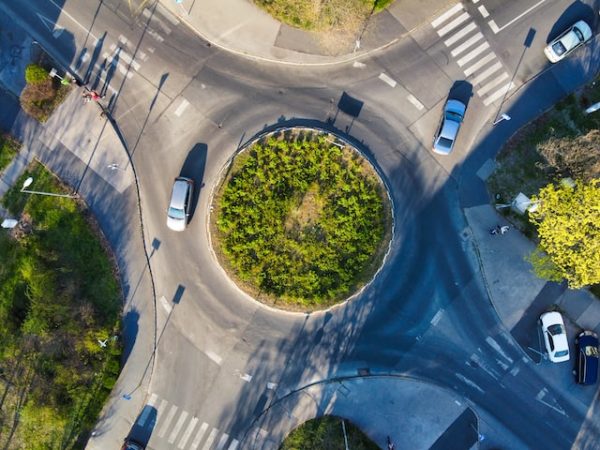PennDOT Study Shows Roundabouts Can Reduce Intersection Accidents

To make roadways safer, Pennsylvania has turned to roundabouts. Recent crash data shows that roundabouts can be useful tools to improve roadway safety for drivers, pedestrians, and bicyclists alike, which is good because serious crashes remain a problem in Pittsburgh and other major cities throughout the state.
According to the Pennsylvania Department of Transportation (PennDot), in 2020, an average of 168 people were injured in Pennsylvania car accidents each day, while an average of 3 people died. Based on the state's 2019 population (12,801,989 people), that means about 1 out of every 209 people are injured in Pennsylvania crashes annually.
Roundabouts are saving lives in Pennsylvania.
Based on crash data going 3 years back, 36 locations in Pennsylvania were chosen to have roundabouts installed. Fox 43 reports that another 38 more roundabouts have been built on state routes since then. An additional 16 roundabouts are under construction, and 15 are in the final design stage. Fatalities, injuries, and crashes have decreased at almost every location of the new roundabouts.
From 2002 to 2021, the addition of roundabouts enhanced safety and reduced crashes. For example, consider the following:
- Severe injuries from traffic accidents were reduced by 76 percent.
- Minor injuries from traffic accidents were reduced by 22 percent.
- Possible/unknown severe injuries from traffic accidents were reduced by 70 percent.
- The total number of traffic accidents decreased by 9 percent.
PennDot has concluded that roundabouts have a higher capacity than other intersections, holding 30 percent more vehicles during peak traffic hours. As a result, traffic flows slowly but continuously. There are no lights compelling drivers to stop; at the most, they have to yield, and crash data shows roundabouts are usually much safer than traditional signaled intersections.
What are the safety benefits of roundabouts?
According to the Insurance Institute for Highway Safety (IIHS), roundabouts are a safer alternative to traffic signals and stop signs. Most traffic accidents at intersections happen head-on, at a right angle, or left turn. With a roundabout, these types of severe accidents are less likely to occur.
Research shows roundabouts significantly improve traffic flow. More modern roundabouts are smaller and have sharper turns than older ones. This forces vehicles to slow down even more as they maneuver through. Speeds usually don't get any higher than 25 miles per hour. And because traffic only flows in one direction, roundabouts are generally safer for pedestrians to cross. The distance they have to walk is much shorter than at a typical intersection.
Since roundabouts have so many safety benefits, why aren't there more of them? Unfortunately, roundabouts can only be installed in certain terrains, so the best safety officials can do at some locations is use traffic lights and other signals. But when the area is right, roundabouts may be the best option.
Pittsburgh's go-to car accident attorneys
Even with roundabouts, car accidents still happen frequently—often as the result of another driver's negligence. And while you might not think you need to hire a car accident attorney to recover compensation for your losses, it's common for seemingly straightforward car accident claims to quickly turn into complicated legal cases. That's because insurance companies for at-fault drivers want to pay crash victims as little as possible, if anything at all.
Don't let an insurance company take advantage of you. The Pittsburgh car accident lawyers at Romanow Law Group are ready to aggressively fight for your rights. We build strong cases that have been proven to get big results, and we understand what it takes to get you the maximum compensation you deserve.
Discover what our law firm can do for you. Contact us today for a free consultation.
